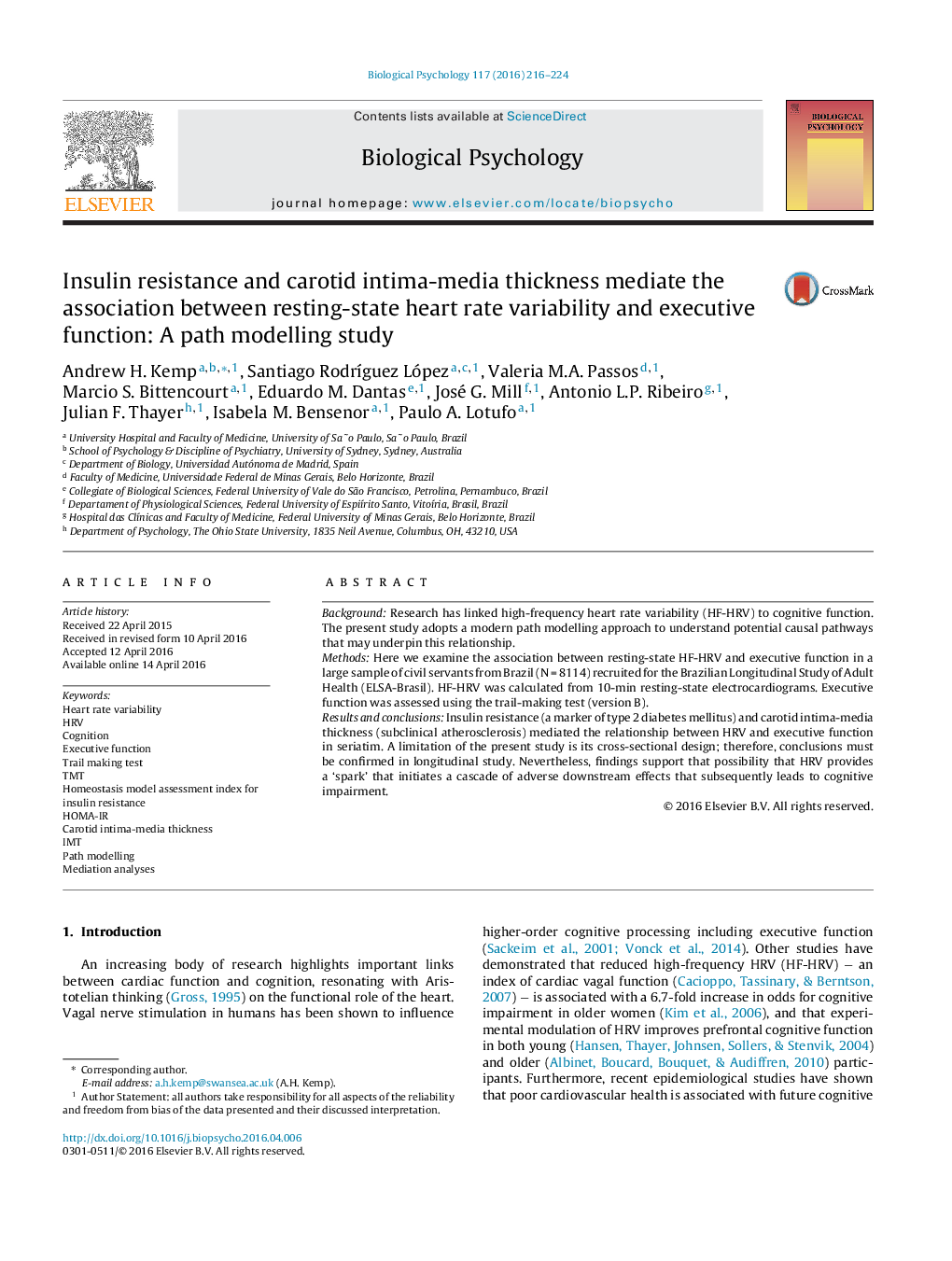| Article ID | Journal | Published Year | Pages | File Type |
|---|---|---|---|---|
| 920714 | Biological Psychology | 2016 | 9 Pages |
•HRV is associated with executive function, but causal pathways remain to be examined.•Available evidence provides a framework on which potential mechanisms are explored.•Insulin resistance and atherosclerosis mediated the HRV-cognition relationship in seriatim.•Results support a regulatory role of vagal function over downstream processes.
BackgroundResearch has linked high-frequency heart rate variability (HF-HRV) to cognitive function. The present study adopts a modern path modelling approach to understand potential causal pathways that may underpin this relationship.MethodsHere we examine the association between resting-state HF-HRV and executive function in a large sample of civil servants from Brazil (N = 8114) recruited for the Brazilian Longitudinal Study of Adult Health (ELSA-Brasil). HF-HRV was calculated from 10-min resting-state electrocardiograms. Executive function was assessed using the trail-making test (version B).Results and conclusionsInsulin resistance (a marker of type 2 diabetes mellitus) and carotid intima-media thickness (subclinical atherosclerosis) mediated the relationship between HRV and executive function in seriatim. A limitation of the present study is its cross-sectional design; therefore, conclusions must be confirmed in longitudinal study. Nevertheless, findings support that possibility that HRV provides a ‘spark’ that initiates a cascade of adverse downstream effects that subsequently leads to cognitive impairment.
